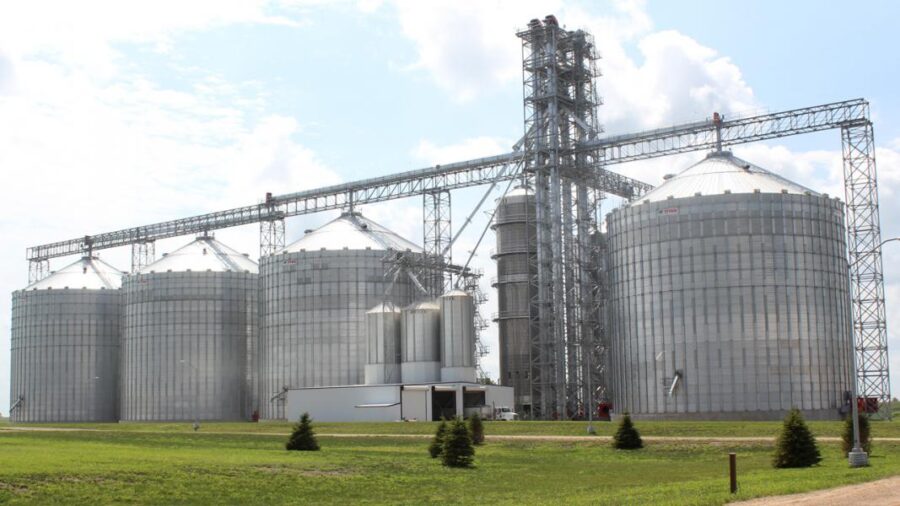Grain bin accidents happen quickly. In a matter of seconds, anyone can be suffocated by moving grain. Farming is one of the most dangerous occupations, according to the National Safety Council. Central Illinois farmers should take time to be safe while monitoring or working with grain bins.
In Illinois, most accidents involve being trapped in flowing corn, soybeans, or wheat from bins, wagons, or trucks. Adults can be trapped in less than five seconds and submerged in 20 seconds or less.
“Grain flowing from the bottom of a bin is like quicksand,” said Doug Gucker, University of Illinois Extension local food systems and small farms educator. “Once someone has been pulled into grain above their knees, they cannot get out by themselves because of the pressure on their legs.”
Avoid accidents by taking preventative steps that will reduce the need to enter a grain bin. Lock entrances to grain handling areas to keep out bystanders and children. Install ladder inside bins for an emergency exit. If you must enter a bin to check storage conditions, shut off and lock out all unloading equipment and treat the bin as a potentially dangerous confined space. Enter a bin with a trained observer to assist you and wear a properly anchored lifeline.
Make sure the atmosphere in the bin is safe. Run the fan in the grain bin for several hours before attempting to go in because dust and gasses can be deadly. Wear a dust filter or respirator and hearing protection.
Moldy or wet grain often clumps together on the upper layers. As you unload from the bottom, a large air pocket can form below the surface. Use a long wooden pole to break up clumped grain from above. The weight of anyone walking on the crusted surface can cause grain to collapse.
If grain starts to flow while you are in the bin, stay near the outer wall and keep walking. Get to a bin ladder or safety rope as quickly as possible. If someone becomes trapped in grain, shut off power unloading equipment immediately. Turn on the aeration fan, and call 911.
For more information on grain safety, including training programs, visit grainsafety.org.
Source: Doug Gucker, Local Foods and Small Farms Educator, Illinois Extension
Writer: Emily Steele, Communications Coordinator, Illinois Extension
***Report Courtesy of the University of Illinois Extension***
















